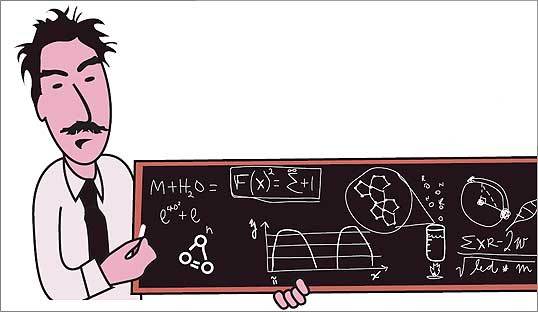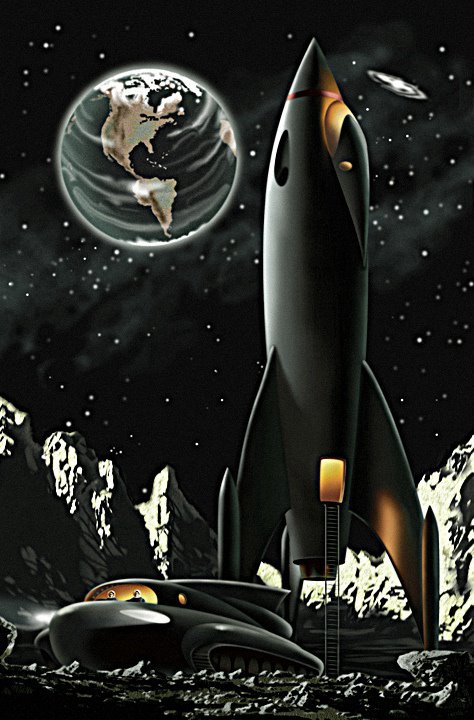
Why don't Americans understand science better? Start with the scientists. (Short article by the co-authors of the new book "Unscientific America: How Scientific Illiteracy Threatens Our Future," via boston.com)
Tuesday, July 28, 2009
Tuesday coffee break: understanding science
Wednesday, July 15, 2009
To do two things at once is to do neither.*

The Autumn of the Multitaskers: "The rise of personalized technology was supposed to give us time and freedom. Instead, argues Walter Kirn, it has imprisoned us. With self-deprecating wit, Kirn takes us along on a bruising ride through multitasking hell, and explains why 'parallel processing' threatens both the brain and the GNP."
Finalist, essays, American Society of Magazine Editors' Best American Magazine Writing 2008. (Walter Kirn, The Atlantic)
*--Publilius Syrus, Roman slave, first century B.C.
Saturday, July 11, 2009
Watching whales watching us

"Whales, we now know, teach and learn. They scheme. They cooperate, and they grieve. They recognize themselves and their friends. They know and fight back against their enemies. And perhaps most stunningly, given all of our transgressions against them, they may even, in certain circumstances, have learned to trust us again." (N.Y. Times Magazine)
Thursday, July 9, 2009
Terminal Ice

"...at the heart of the mystery, like broken shards of a colder climate, float the icebergs, ghost-white messengers trying to tell us something we can't quite fathom."
Finalist, feature writing, American Society of Magazine Editors' Best American Magazine Writing 2003. (Ian Frazier, Outside)
Wednesday, July 8, 2009
Friday, June 26, 2009
Friday coffee break: alcoholic monkeys in St. Kitt's, via the BBC
"Just as we vary in our tastes for alcohol, so do the monkeys...just as some people are teetotalers, so are some of the monkeys. Significantly, the percentage of teetotaler monkeys matches the nondrinkers in the human population..."
Wednesday, June 24, 2009
Wednesday coffee break: Origin of Species

How a femur sparked a new field of biology — and a scientific smackdown. (wired magazine)
Tuesday, June 23, 2009
Tuesday coffee break: a library of the world's most unusual compounds

"Deep in the bowels of a brutalist concrete building on the Strand, long shelves are packed -- crammed, really -- with some of the world’s strangest substances, from the past, present and sometimes, it seems, the future. Take Aerogel: the world’s lightest solid consists of 99.8 per cent air and looks like a vague, hazy mass. And yet despite its insubstantial nature, it is remarkably strong; and because of its ability to nullify convection, conduction and radiation, it also happens to be the best insulator in the world. Sitting next to the Aerogel is its thermal opposite, a piece of aluminium nitride, which is such an effective conductor of heat that if you grasp a blunt wafer of it in your hand, the warmth of your body alone allows it to cut through ice. Nearby are panes of glass that clean themselves, metal that remembers the last shape it was twisted into, and a thin tube of Tin Stick which, when bent, emits a sound like a human cry. There’s a tub of totally inert fluorocarbon liquid into which any electronic device can be placed and continue to function. The same liquid has been used to replace the blood in lab rats, which also, oddly enough, continue to function."
Friday, June 5, 2009
Two Billion Cars...

Curious about why US cars remain such environmental menaces? Here's an interview with researcher Daniel Sperling, co-author of the new book "Two Billion Cars." From our pals at American Scientist.
Thursday, June 4, 2009
Thursday, April 23, 2009
All-American Space Fleet:1950s

Twenty-four vintage "Space Fleet" collector's cards from Skelly Gas.
Monday, April 6, 2009
Robotics, genetic engineering, deep space...
Nine Words You Might Think Came from Science but
Which Are Really from Science Fiction
(Oxford University Press)
Tuesday, March 24, 2009
Tuesday coffee break: the science of coffee

"After many years in grad school I think I’ve had at least as much coffee as science. Despite this devotion to caffeination, I realized recently that I know very little of the actual science behind the making of coffee."
Thursday, March 19, 2009
Tuesday, March 17, 2009
Tuesday coffee break, part 2: Vintage visions of the future

"Soviet and Eastern Bloc popular tech and science magazines, German, Italian, British fantastic illustrations and promotional literature -- all from the Golden Age of Retro-Future."
Tuesday coffee break: It could be worse...
...you could be part of a bait ball:
Hungry whales steal birds' dinner and Fish feast frenzy caught on film
Friday, February 13, 2009
Friday coffee break: mothballed
The storage closets of the American Museum of Natural History (photo essay, seed magazine)
Monday, February 9, 2009
Monday Coffee Break: Violent Death in the Insect World

"Death in the domain of the insects can be swift and cruel but retains a magnificence and beauty that is somehow at odds with the brutality of what is happening..." (scienceray.com)


